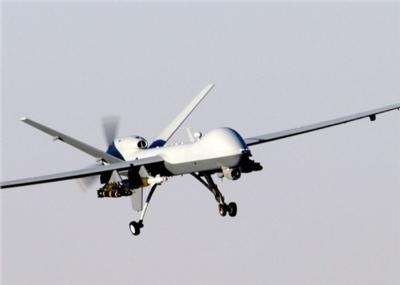Mon, Feb 23, 2015
Will Make Unmanned Weapons Systems More Available To Allies
A new policy announced by the U.S. State Department will loosen export restrictions in armed UAVs, allowing U.S. allies greater access to the weapons systems.

The policy was released Tuesday by the state department.
The Washington Post reports that Italy, Turkey, and U.S. allies in the Persian Gulf region have been anxious to acquire the aircraft. It also allows U.S. defense contractors to capture a greater share of the global arms market.
So far, the U.S. has sold armed UAVs only to Britain, according to officials. Unarmed systems have been sold to other allies such as France and Italy.
According to the state department document, the new export policy puts in place stringent conditions on the sale or transfer of military UAS, including potential requirements for:
- Sales and transfers of sensitive systems to be made through the government-to-government Foreign Military Sales program;
- Review of potential transfers to be made through the Department of Defense Technology Security and Foreign Disclosure processes;
- Each recipient nation to be required to agree to end-use assurances as a condition of sale or transfer;
- End-use monitoring and potential additional security conditions to be required; and
- All sales and transfers to include agreement to principles for proper use.
The new policy also maintains the United States’ long-standing commitments under the Missile Technology Control Regime (MTCR), which subjects transfers of military and commercial systems that cross the threshold of MTCR Category I (i.e., UAS that are capable of a range of at least 300 kilometers and are capable of carrying a payload of at least 500 kilograms) to a “strong presumption of denial” for export but also permits such exports on “rare occasions” that are well justified in terms of the nonproliferation and export control factors specified in the MTCR Guidelines.
It also outlines principles for proper use of U.S.-origin military UAS. All commercial UAS will be reviewed under the requirements and licensing policies described in the Export Administration Regulations.
(Image from file)
More News
From 2023 (YouTube Edition): "Ain’t Your Daddy’s Super Cub”—Don Wade Co-owned by Don and Ron Wade—the former of Don’s Dream Machines, a storied >[...]
Pilot-Rated Passenger Reported That The Pilot Did Not Adequately “Round Out” The Landing Flare And The Airplane Bounced And Yawed To The Right Analysis: The pilot state>[...]
Dead Reckoning Dead reckoning, as applied to flying, is the navigation of an airplane solely by means of computations based on airspeed, course, heading, wind direction, and speed,>[...]
Aero Linx: Lake Amphibian Club This website is created and sponsored by the Lake Amphibian Club, to help spread the word about these wonderful, versatile amphibians that can land j>[...]
“I am deeply honored to be sworn in as NASA administrator. NASA’s mission is as imperative and urgent as ever — to push the boundaries of human exploration, ignit>[...]
 Classic Aero-TV: In Praise of Alabamas Patriot Aircraft USA
Classic Aero-TV: In Praise of Alabamas Patriot Aircraft USA NTSB Final Report: Cirrus Design Corp SR22
NTSB Final Report: Cirrus Design Corp SR22 ANN's Daily Aero-Term (12.21.25): Dead Reckoning
ANN's Daily Aero-Term (12.21.25): Dead Reckoning ANN's Daily Aero-Linx (12.21.25)
ANN's Daily Aero-Linx (12.21.25) Aero-News: Quote of the Day (12.21.25)
Aero-News: Quote of the Day (12.21.25)



